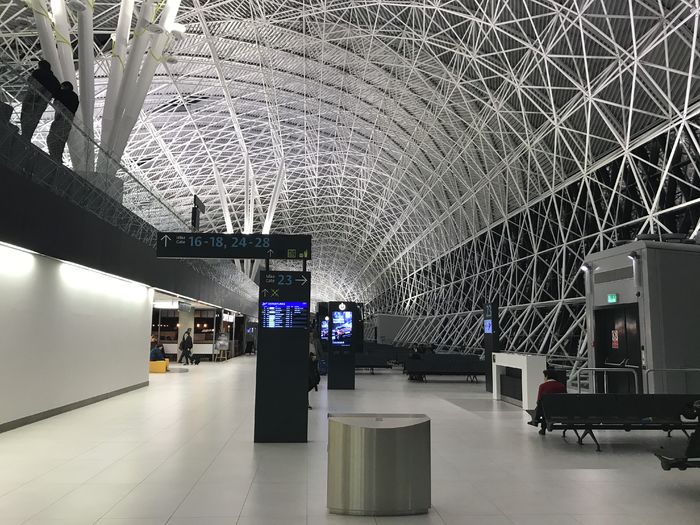The University should not let the concerns of its graduate students become an afterthought
For graduate students, the University’s Covid-19 shut down creates confusion and concerns for their research undertakings, permanent home situation and financial circumstances

After concern for loved ones and those who are falling ill to Covid-19, one’s degree may currently be a peripheral concern. However, many graduate students are beginning to reflect on the implications of the University’s Covid-19 induced closure next term for both the progress of their research degrees and their personal lives. PhD students, in particular, must now consider how the University’s closure will hinder their ability to continue to undertake research, where they will locate their permanent home, and what research delays may mean for scholarships and personal finances.
Many graduate students encounter additional difficulties which remain unaddressed by the University’s already confusing measures for Covid-19. A sense that the University is largely oriented towards undergraduates is not a new realisation for those in the graduate community, yet this is mostly benign – fewer formal halls out of term when many grads remain in Cambridge, or busy May Week schedules which fail to consider that some of us continue to work after the start of June. The Covid-19 pandemic, however, has exposed the extent to which the concerns of graduate students are often overlooked. Though Cambridge has fewer graduate students than undergraduates, we are still a significant proportion of the student body. With around 9,500 graduate students in any given academic year, compared to around 12,000 undergraduates, the concerns of graduate students should not be an afterthought.
“PhD timelines are tightly scheduled, so a break of even a few months ... can create considerable difficulties”
In the last few weeks, concern has been raised about how undergraduate exams will be assessed, how undergraduates should navigate termly accommodation licenses, and what to do about personal possessions left in dorm rooms. These concerns are valid and need to be sensitively managed, yet it must be acknowledged that changes to examination procedures may indirectly affect grads by limiting earning opportunities. Easter term exam invigilation, exam marking and dissertation supervising can provide a convenient income for grads. Cambridge UCU raised concerns that the disruption to teaching ‘may have dramatic impacts for these workers who do not have the safety-net provided by a standard employment contract but nevertheless rely on the income that they earn from teaching’.
However, it is longer-term concerns which arise from disruption to normal University functioning that may be more detrimental for graduate students. The primary concern for many grads is not being able to access specialist working environments. Students in the science subjects, especially those who are based in a laboratory, are often unable to work remotely. For many of these PhD researchers, regular attendance is essential for the upkeep of experiments and the care of plants, animals or other equipment. As such, the suggestion of some colleges that students should suddenly leave, and the indefinite closure of University departments, creates particular anxiety.
In a flood of hasty emails over the last few weeks, some graduate students have been informally told by supervisors variations on the suggestion that they should consider ‘what you might need to do in order to work from home if you cannot access the building’. At the same time, uncertainty about how long labs will be closed creates confusion, with students being told to freeze cells so that experiments can be continued at a later date. A student working in plant sciences explained that ‘it’s not really an option to stay out of the lab longer than two weeks’. She added: ‘my PhD isn’t happening unless I’m in the lab. It’s kind of a disaster if it closes down’.
“Whilst undergraduates focus around three eight-week terms per year, Cambridge is the year-round ‘home’ for most PhD students”
Those who sought to continue their research before labs closed faced a precarious situation. Physics PhD students were initially told in an email that labs remained accessible, albeit with potential safety risks as there were to be ‘no firewardens or first aiders on site’. Students have raised concern to Varsity about the health and safety risks that the minimal provision of support staff could expose researchers to.
Researchers whose topics require domestic and international travel are also disrupted by the current outbreak. Although the University has distributed guidance about its insurance policies for financial assistance associated with planned trips, it remains unclear what provisions the University will make in the longer term for students who rely on travel for their research. Some PhD research focuses on a specific place or event, at a specific moment, or spending considerable lengths of time consulting archives overseas. If events are cancelled, projects may need to be reoriented. A PhD student explained that ‘for postgraduate researchers who depend on interviews and fieldwork, it seems there are not a lot of alternatives’ if events are cancelled in their entirety. Whilst this pandemic will most likely encourage vital new research projects in the future, reorientations midway through a PhD project are more problematic.
For MPhil students, the Easter break is usually when much of their fieldwork is undertaken. MPhil students have received different advice depending on their faculty. Whilst some have been told that it may be possible to postpone research and assessment until a later date, others have been advised simply to change their research topics – yet, often, their dissertation topics were the basis of their application to Cambridge. It is now March, and dissertation deadlines are usually scheduled for as early as the end of May. How – and if – the University will make allowances for these disruptions to essential fieldwork trips has not yet been communicated.
“the implications of Covid-19 for graduate students cannot be easily rectified by rearranging examination practices”
PhD timelines are tightly scheduled, so a break of even a few months, especially if unexpected, can create considerable difficulties for the overall progression of a project. Disruption to a PhD timeline may also have financial implications. Graduate students lucky enough to be funded by a scholarship often receive a three or four year stipend. Yet, the Covid-19 situation is likely to be prolonged and it is currently unknown whether funding will be extended to allow students to complete their thesis.
A further problem arises from the University’s expectation that Graduate students make Cambridge their home. Full-time graduate students are required to live in Cambridge for at least three terms, and within ten miles of the University thereafter. Whilst undergraduates focus around three eight-week terms per year, Cambridge is the year-round ‘home’ for most PhD students – particularly those with partners and children. The University’s request ‘to return home now, if possible’ was thus met with confusion by many grads. This request, in an email sent to all students on 18th March, was even more confusing for graduate students who are also employed by the University. As of Tuesday 17th, University staff were told to ‘avoid any international travel on University business’ and ‘to review personal overseas travel, as well’. These contradictory stances added further confusion for employed postgraduates.
Outside of the University, the cancellation of conferences and summer schools could have a more significant impact on academic progression for PhD students. Not only are these events opportunities to network with both young and established academics, they are also a means by which to publish research findings, discuss research problems with academics outside of one’s home institution, secure journal publications or create contacts valuable for future employment. Such cancellations are beyond the University’s control. Nonetheless, it must be acknowledged that the implications of Covid-19 for graduate students cannot be easily rectified by rearranging examination practices.
Graduate students often share and empathise with many of the concerns encountered by undergraduates at the present time. Yet the considerable email space which has sought to reassure undergraduates that contingency measures will be in place to minimise disruption to the examination process overlooks the anxieties of graduate students. It is clear that many senior college and University staff are working tirelessly to assist the most urgent issues at this uncertain moment. Nonetheless, graduate students have many concerns that extend beyond final exams in May and June. Anxieties about future research, finances and the overall progression of their research degrees must be acknowledged, and clearly communicated, as the University begins to explore how to respond to Covid-19 in the longer term.
 Interviews / You don’t need to peak at Cambridge, says Robin Harding31 December 2025
Interviews / You don’t need to peak at Cambridge, says Robin Harding31 December 2025 Comment / What happened to men at Cambridge?31 December 2025
Comment / What happened to men at Cambridge?31 December 2025 News / Unions protest handling of redundancies at Epidemiology Unit30 December 2025
News / Unions protest handling of redundancies at Epidemiology Unit30 December 2025 News / Varsity’s biggest stories of 202531 December 2025
News / Varsity’s biggest stories of 202531 December 2025 News / Downing investigates ‘mysterious’ underground burial vault 29 December 2025
News / Downing investigates ‘mysterious’ underground burial vault 29 December 2025











